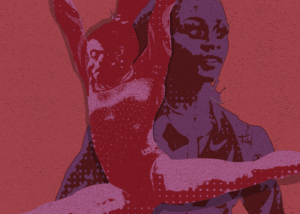A colossus looms on the horizon: the skeleton of a soccer stadium in Qatar ahead of the 2022 FIFA World Cup. In the midst of construction, thousands of underpaid migrant workers toil in the scorching heat. Many desperately want to help their families back home but have no idea if or when their next paycheck will arrive.
I detailed the labor conditions faced by migrant workers in Qatar for my Georgetown SFS application essay two years ago. Now, as of Nov. 18 publication, the World Cup kicks off in Qatar’s Al Bayt Stadium in less than 48 hours. The whole world is gearing up for its most viewed spectator sporting event—3.572 billion people tuned in back in 2018. Millions of fans have descended upon the tiny Gulf nation to witness the tournament as well. However, the spotlight on the first World Cup in southwest Asia has shed a light on issues beyond the thrilling action on the pitch.
Strong suspicions of corruption, logistical issues, and human rights concerns have surrounded Qatar’s World Cup since it launched its bid. While nothing direct has been proven, the Department of Justice accused Qatar of bribing officials from FIFA, soccer’s international governing body, to vote for them in the host selection process. Several FIFA officials have been arrested in connection with TV rights deals linked to the scandal. Adding to the complications, an average summer temperature of 107 ° F in Qatar forced FIFA to move the World Cup from June-July to November-December. This directly conflicts with the club soccer season of most European leagues, condensing an already tight schedule to fit the Cup. As a result, player injuries have spiked due to decreased rest, ending the World Cup dreams of high-profile stars such as France’s Paul Pogba, Germany’s Timo Werner, and Portugal’s Diogo Jota.
Additionally, there have been concerns from fans and international human rights organizations about Qatar’s human rights record, as Qatar criminalizes homosexuality. Nasser al-Khater, Chief Executive Officer of the Qatar World Cup, said that “any fan of any gender, [sexual] orientation, religion, race should rest assured that … they’ll all be welcome here,” but this will be tested throughout the next month.
The most significant controversy surrounding Qatar 2022, however, is the Qatari government’s handling of the migrant workers who comprise 90 percent of the state’s workforce and built all of their new stadiums from scratch. Under the kafala system, Qatar sponsored workers from several South Asian countries to come work but then proceeded to make them sign restrictive contracts that left their employers in total control of their working rights. It was not uncommon for employers to confiscate passports, and workers sometimes didn’t know if they would ever be able to leave the country again. They worked long hours in extreme heat without breaks. Although government records claim 37 World Cup stadium construction workers died between 2014 and 2021, that count does not include heat-related deaths, and a 2021 investigation by The Guardian found that 6,500 workers from India, Pakistan, Bangladesh, Nepal, and Sri Lanka have died since the World Cup was awarded to Qatar.
To its credit, Qatar introduced a reform in 2017 that eliminated many conditions of the kafala system. It set a minimum wage and allowed workers to leave the country and change jobs without employer permission. According to Amnesty International, though, this only helped marginally. Workers still experience subpar conditions, past compensation is still owed in some cases, and many deaths remain unexplained.
Nevertheless, some aspects of the reforms have succeeded. A Nov. 14 panel at Georgetown, “Under the Spotlight and in the Headlines: Qatar and the 2022 World Cup,” pointed to some substantial changes. Danyel Reiche, a professor at Georgetown in Qatar (GU-Q), mentioned a trailblazing law implemented last year forbidding outdoor work between 10 a.m. and 3:30 p.m. between June and September. Zahra Babar, associate director for research at GU-Q’s Center for International and Regional Studies, highlighted a new electronic system that tracks worker payments, notifying the government if they do not arrive on time. This does not erase the transgressions of the recent past, and all the panelists stressed that Qatar needs to be held accountable for its continued implementation of the new laws. Will these reforms continue after the World Cup ends and the global magnifying glass is removed?
Despite these reforms and FIFA’s warning to “focus on football,” several countries have protested migrant worker exploitation in Qatar. In Denmark’s World Cup kits, the national team logo and sponsor blend monochromatically into the jersey as a human rights protest, despite FIFA prohibitions on political statements on team merchandise. The Australian national team released a critical video about the situation, and Netherlands coach Louis van Gaal pledged that he and his squad would meet with migrant workers while in Qatar. German fans, notorious for their passion and often fiercely progressive political stances, were extremely vocal in their dissent; the hardcore fans of German Club Bayern München held aloft this message: “15,000 dead for 5,760 minutes of football. Shame on you!” While 15,000 is an exaggerated number deriving from Qatar’s official records of all non-Qatari deaths in the country between 2010 and 2019, not just those of workers, the message reads loud and clear.
Major international sporting events such as the World Cup always provide a spectacle on the political front. Countries bidding to host them seek soft power—more influence on the global stage—and visibility in addition to improved infrastructure. In this way, Qatar is not alone in its hunger for glory. The 2018 hosts were none other than Vladimir Putin’s Russia, and even former hosts like France and the United States sought to boost their international image by hosting the tournament.
With all this in mind, expect off-the-field issues to dominate the headlines over the course of the tournament just as much as the action on the pitch. The Qatari leadership will have to bank on the hope that the income and development generated by this tournament will outweigh the negative international attention the country has received.





